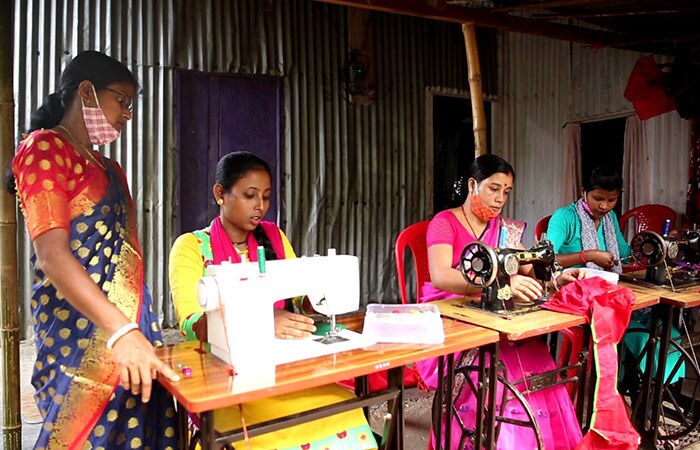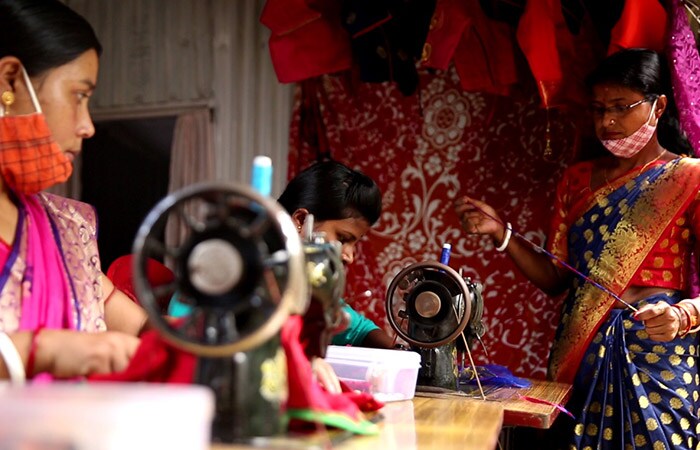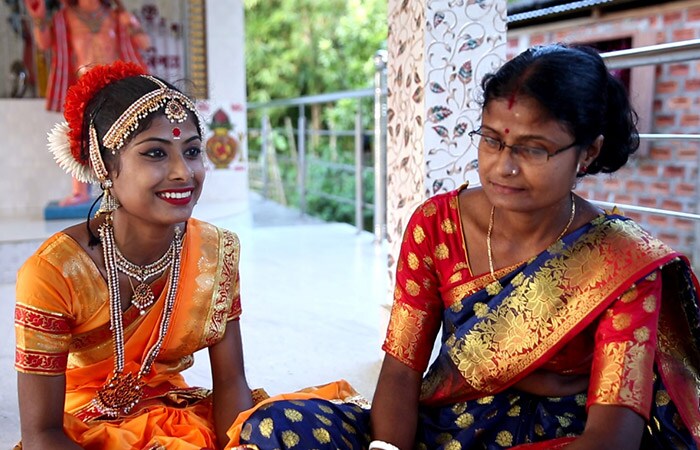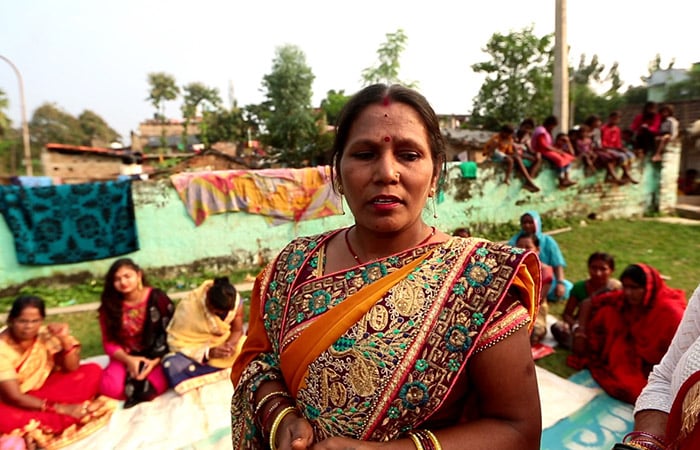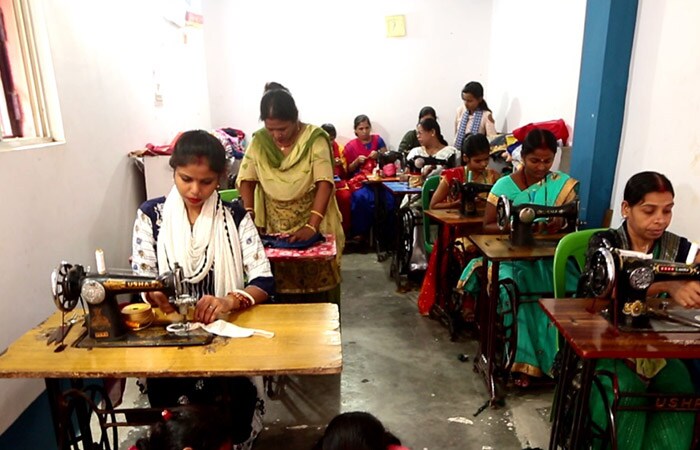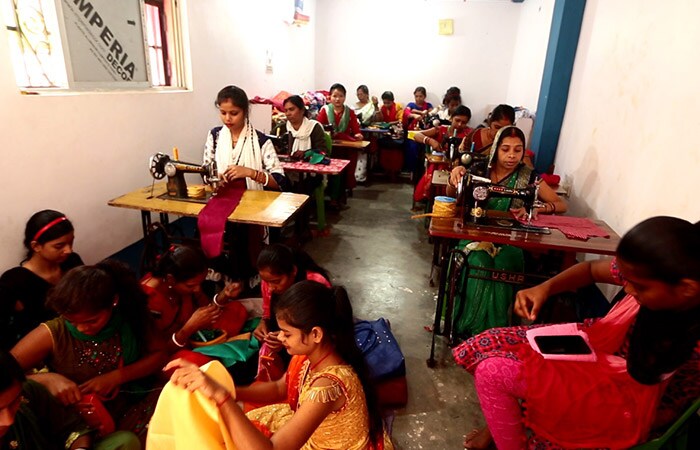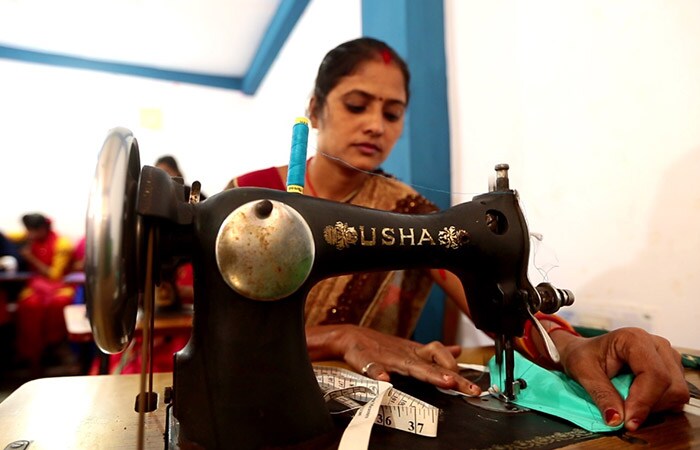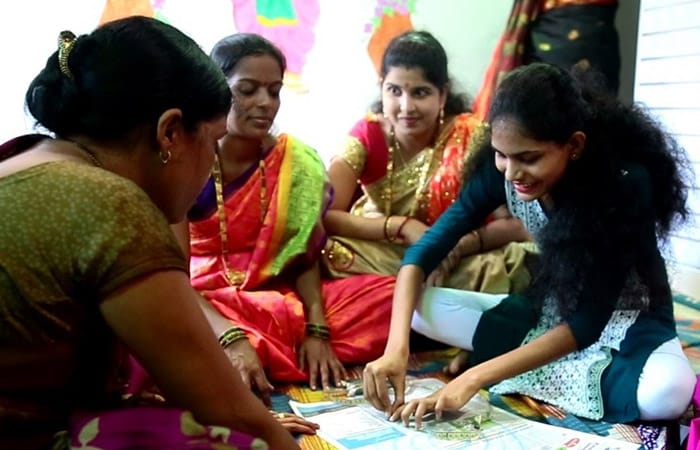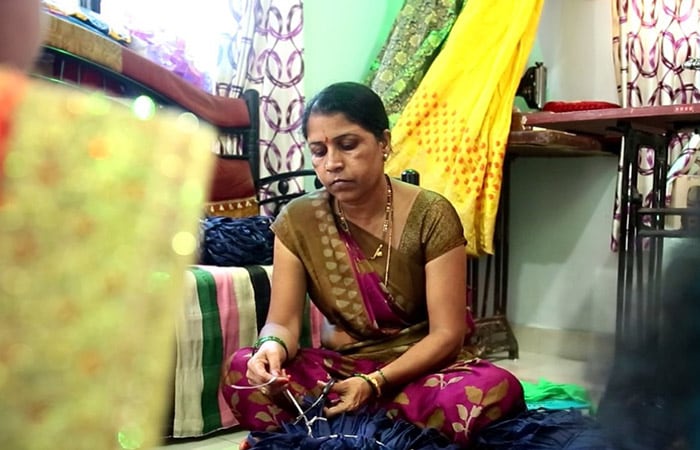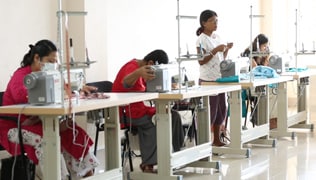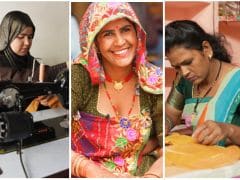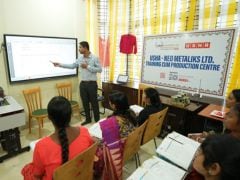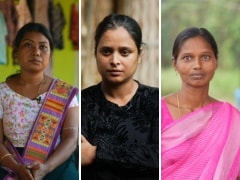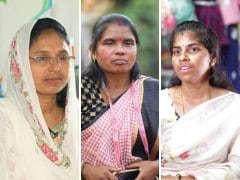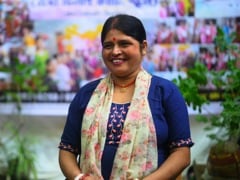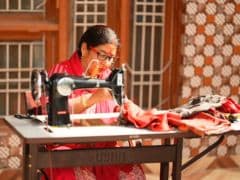Sustenance Of USHA Silai School Teachers And Their Contribution To Society During Crisis
When COVID-19 pandemic induced lockdown led to the loss of jobs and financial crisis in many homes, USHA, skilled women in mask making which not only supported their families, making them sole bread winners, but also opened income opportunities for their learners as well. Teaching women about mask making during the pandemic not only benefitted the women to create items to protect themselves from coronavirus and their families but also it generated some income for them and their students during the crisis. Gouri Das, Kalawati Sharma and Jayashree Janardhan Ghodvinde are three of the eight lakh women who worked non-stop during the coronavirus outbreak, sustaining not only themselves, but other Silai School students and teachers as well.
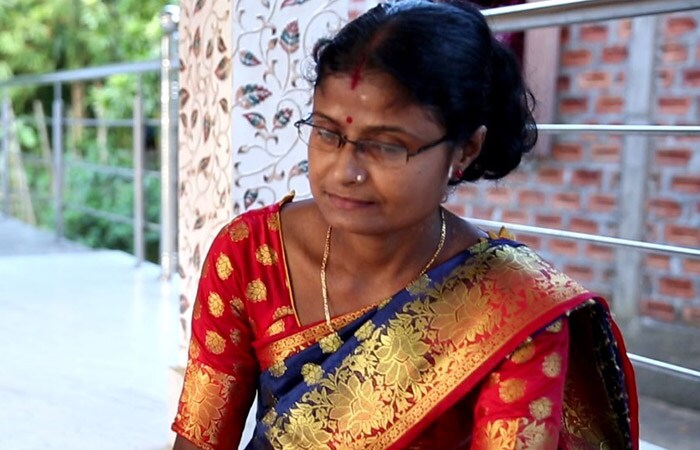
38-year-old Gouri Das from Gumrah village in Barak valley, one of the remotest regions of Assam is a mother of three children, and an USHA Silai School trainer. People in her village say that she is a strong, motivated woman. She runs an USHA Silai School in her house. When she found about USHA conducting a training near her village, got herself enrolled.
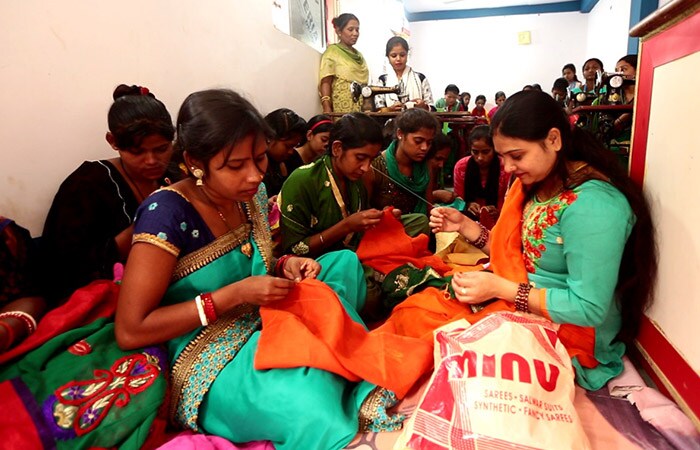
She said that after getting an order from the village head, her Silai School women got work and started earning. But, they were told to arrange for the raw material themselves. As all shops were closed, it was difficult for them to access the required raw material easily. Ms Sharma went to the homes of shopkeepers and requested them to provide the material.
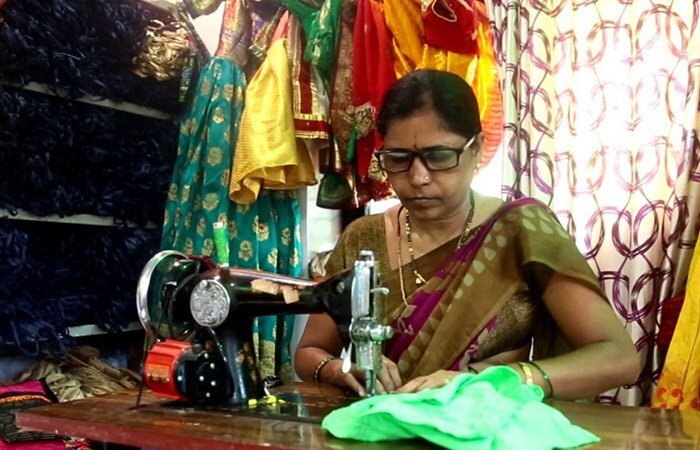
Jayashree Janardhan Ghodvinde who lives in Khalapur block of Raigad, Maharashtra started her Silai School on October 1, 2016. She then learnt sewing and got married at the age of 20 to Janardhan Ghodvinde, an auto-rickshaw driver. Soon after the marriage, she understood the economic limitations of her family. She began to work by taking stitching and sewing orders from her neighbours.
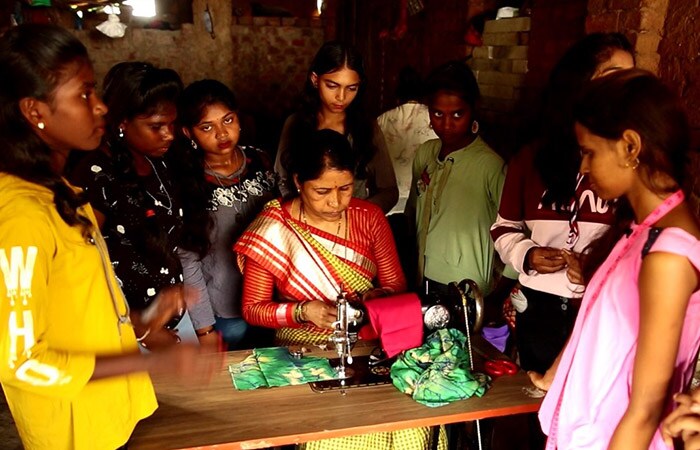
Ms Ghovinde charges Rs. 500 per month from her students. She has bought two more machines which enables her to teach more women in her class. Given her hectic schedule, she cannot work on 'stitching and sewing' orders for blouses, suits etcetera. She earns around Rs. 10000 to Rs. 12000 on an average in a month, solely based on Silai School. By saving every penny, she has managed to return a part of the gold loan that her husband had borrowed from the bank. She has educated her daughter and recently married her off. She has even bought a four-wheeler.
Adopt a Silai School
About the Initiative
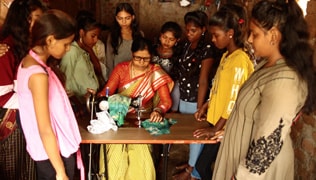
Kushalta Ke Kadam, an initiative by USHA Silai School and NDTV has entered its eighth season. The aim is to empower more women across rural India by teaching them sewing skills and helping them open new doors of opportunities for themselves. The initiative encourages rural women to become financially independent and entrepreneurs by taking up sewing and training others in their respective communities.
Since 2011, the USHA Silai School initiative has trained more than 12 lakh rural women through over 33,000 Silai schools, spanning over 20,751 villages across India.
The women earn Rs. 4,000 – 5,000 per month on an average, with the highest recorded monthly earning being Rs. 84,000 in a month. This earning works as a catalyst towards building their self-confidence, reducing gender inequities, and raising their stature within their families and in society at large.
Latest Stories
- Written by Team NDTV | Friday January 02, 2026
Usha Silai Schools give second chances to women like Srinagar's Marifat, who rebuilt after widowhood; Madhya Pradesh's Jyoti, escaping abuse to run her own center; and Rajasthan's Vimla, rising from child marriage to tailor and teacher. Through nine-day training, they gain sewing skills, confidence, and income proving one stitch mends lives and inspires communities.
- Team NDTV | Friday December 26, 2025
A new wave of corporate-community partnerships is equipping rural women with skills, income and confidence
- Written by Team NDTV | Friday December 12, 2025
USHAs Silai School Programme empowers women across India by turning sewing into independence. Women become trainers and leaders, transforming their lives and communities through skills, confidence, and income
- Written by Team NDTV | Thursday December 11, 2025
USHA Silai School is empowering women across India by turning sewing skills into leadership and income. Women like Lalita, Yashira, and Pushpakala have become mentors, reviving traditions and building stronger communities. Their stories show how one skill can weave a brighter future.
- Written by Team NDTV | Wednesday December 10, 2025
From homemaker to celebrated teacher, Lakhi Debnath transformed her life via Usha Silai School, funding her daughters' education and buying land through tailoring
- Written by Team NDTV | Tuesday December 09, 2025
In Takkar Birpur village, Jammu and Kashmir, Kanta Devi escaped domestic violence and poverty through the Usha Silai School's tailoring training. Earning ₹10,00020,000 monthly, she now teaches women in border areas while inspiring her daughter Tanya to dream of a bourtique

